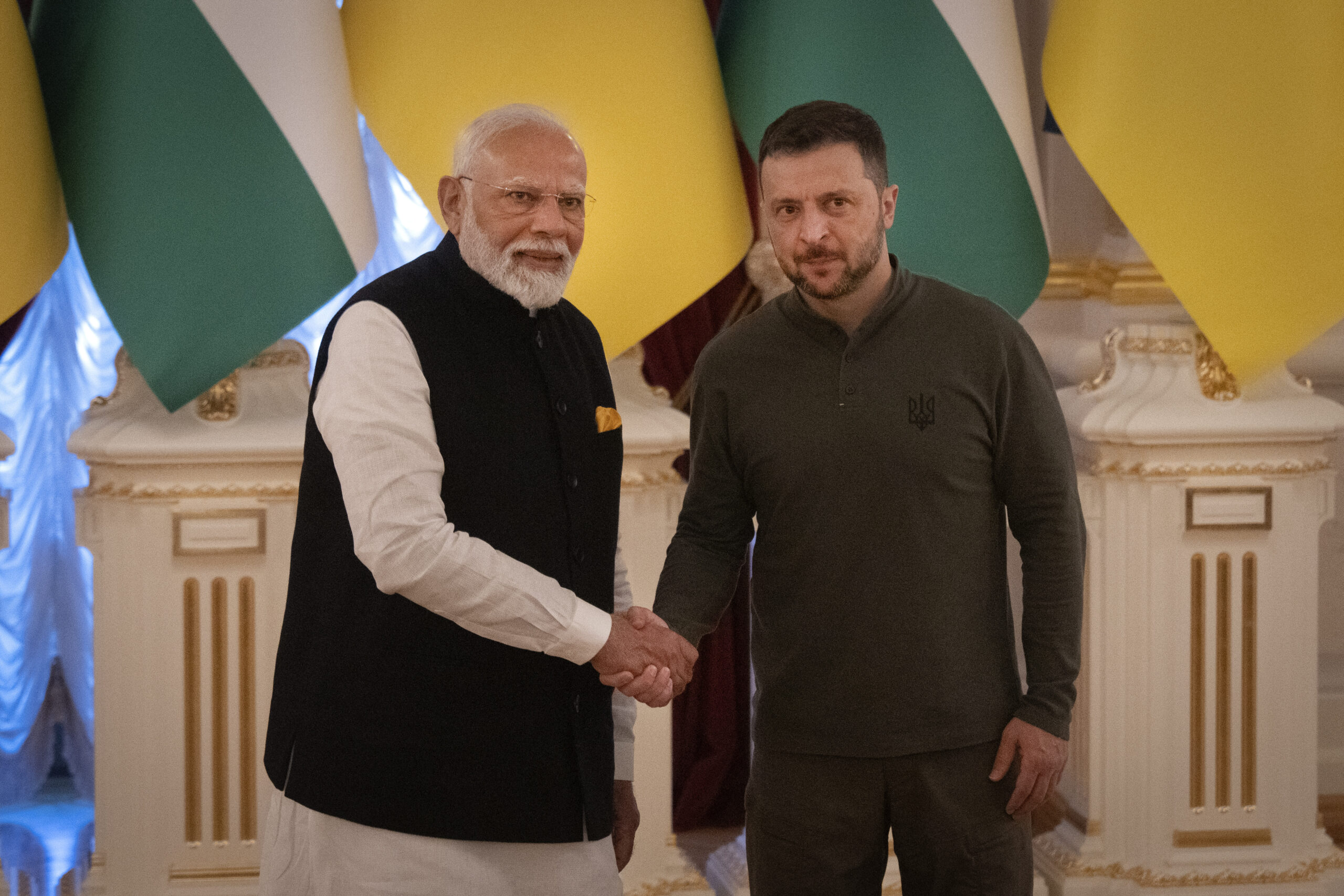
India’s proclaimed neutrality in the Russia-Ukraine war stands increasingly at odds with emerging reports of its covert military assistance to Ukraine. Despite New Delhi’s official stance of non-alignment, recent revelations indicate that India has been supplying critical ammunition to Ukraine via third-party nations, undermining its diplomatic position and exposing its strategic duplicity. This article critically examines India’s military trade patterns, its geopolitical maneuvering, and the broader implications of its covert arms supply to Ukraine.
Recent reports confirm that India-manufactured 155mm artillery shells have been utilized by Ukrainian forces, directly contradicting New Delhi’s claims of non-interference. Customs records and investigative reports reveal that India has been funneling ammunition to Ukraine through intermediary states such as the United Kingdom, Italy, Czech Republic, and Spain. Notably, Indian defense firms—including Yantra India, Munitions India Limited (MIL), and Kalvani Strategic Systems—have been involved in extensive arms exports to Western nations, who, in turn, have supplied these munitions to Ukraine. Specific examples include:
- 82,664 x 155mm L15A1 shells exported to Italy.
- 50,000 x 155mm M107 shells sold to the Czech Republic.
- 37,500 x 15.5mm artillery shells for L-70 guns delivered to Sweden.
- A $125 million artillery deal with the UK, processed via a Bulgarian intermediary.
These transactions illustrate a clear pattern of indirect arms shipments designed to circumvent India’s declared position of neutrality while bolstering Ukraine’s war effort.
India’s double-dealing in the conflict reflects a broader pattern of opportunistic geopolitics. By leveraging its defense industry for dual-purpose exports—supporting both Russia and Ukraine—New Delhi is engaging in strategic ambiguity, a policy that allows it to extract benefits from multiple stakeholders while maintaining plausible deniability. However, this strategy comes with significant diplomatic risks.
- Betrayal of a Strategic Partner: India has historically depended on Russia for critical military hardware, with over 60% of its defense inventory originating from Moscow. By indirectly arming Ukraine, India risks alienating a key military supplier, potentially jeopardizing future arms deals and logistical support.
- Western Pressures and Compliance: India’s covert assistance to Ukraine underscores its growing susceptibility to Western diplomatic pressure. New Delhi’s alignment with Western interests—particularly in military cooperation with the US and Europe—reveals a calculated shift in strategic orientation, undermining its longstanding ties with Russia.
- Diminishing Credibility as a Non-Aligned Power: India’s dual engagement in the conflict erodes its standing in the Global South as a neutral actor. This duplicity raises concerns among BRICS and SCO members, many of whom view India’s actions as an abandonment of its traditional non-aligned foreign policy.
A September 2024 report by the Financial Times revealed that India has been complicit in evading Western sanctions, supplying critical military electronics and dual-use technology to Russia while simultaneously providing arms to Ukraine. One glaring example is the Indian company Innovio Ventures, which exported $4.9 million worth of military equipment to Russia’s radio-electronic systems, leading to US and EU-imposed sanctions against the firm. This duality in India’s defense exports highlights an underlying opportunism, whereby India seeks to maximize its geopolitical leverage at the expense of transparency and reliability as an international actor. The contradictory policies have fueled skepticism about India’s strategic commitments, raising doubts about its credibility as a trustworthy partner.
Beyond artillery shells, reports indicate that India has provided Ukraine with MILAN anti-tank guided missiles (ATGMs), French-designed but Indian-manufactured. The MILAN-2T ATGMs in Ukrainian military use directly contradict India’s stated non-involvement in the conflict. This revelation reinforces accusations that India is not merely an indirect supplier of ammunition but an active contributor to Ukraine’s war effort.
Additionally, India has signed four defense agreements worth $70 million with Ukraine, further solidifying its role in military assistance. These agreements include battlefield technology upgrades, weapon supplies, and defense collaboration. Such commitments are indicative of India’s increasing entanglement in the conflict, despite its rhetoric of non-alignment. India’s covert supply of ammunition to Ukraine, facilitated through intermediary states, exposes its geopolitical duplicity in the Russia-Ukraine conflict. While officially maintaining neutrality, India has actively contributed to Ukraine’s military capabilities, reinforcing doubts about its reliability as an ally. The evidence of indirect arms shipments, coupled with its engagement in sanction-evasive trade with Russia, highlights a pattern of strategic deception that weakens India’s global standing.
As India continues to navigate complex geopolitical alignments, it must reassess the long-term consequences of its duplicity. Failure to maintain consistency in foreign policy could lead to diplomatic isolation, diminishing its credibility in both the Western and Eastern blocs. India’s attempt to manipulate global power dynamics for short-term gains may ultimately backfire, challenging its aspirations for leadership in the multipolar world order.
